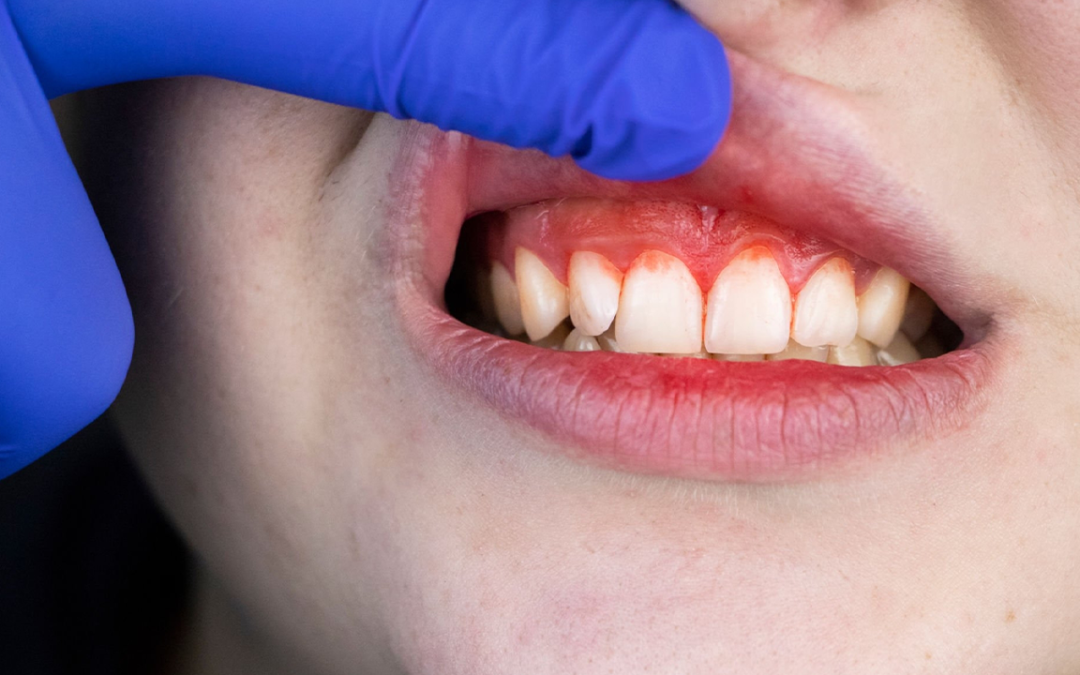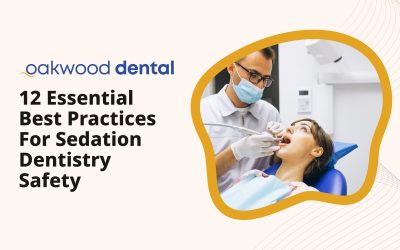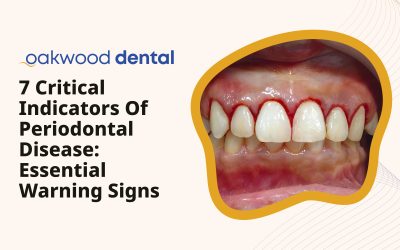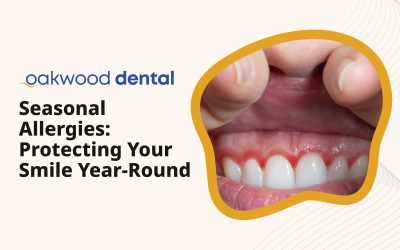Maintaining excellent oral health extends beyond daily brushing and flossing routines. The foods you choose play a fundamental role in supporting dental wellness, influencing everything from tooth enamel strength to gum tissue health. This comprehensive guide examines the most beneficial foods for oral health and explains how proper nutrition contributes to long-term dental wellness. By making informed dietary choices, you can significantly enhance your oral health while reducing the risk of common dental conditions.
Essential Nutrition Facts for Dental Health:
- Calcium-rich foods strengthen tooth enamel and support overall dental structure
- Vitamin C-rich foods promote healthy gum tissue and collagen formation
- Crunchy fruits and vegetables provide natural cleaning action
- Protein-rich foods supply essential building blocks for tissue repair
- Vitamin D enhances calcium absorption for stronger teeth
- Phosphorus-rich foods support tooth structure and enamel strength
- Adequate hydration is essential for maintaining oral health
- A well-balanced diet combining these nutrients promotes comprehensive dental wellness
The nutrients we consume provide essential building blocks that our teeth and gums require to maintain strength and resist bacterial infections. By selecting appropriate foods, we can significantly reduce the risk of common dental issues including tooth decay and periodontal disease. These nutrients help maintain strong tooth enamel, support healthy gum tissue, and influence the pH balance in our mouths, which directly affects bacterial growth patterns.
Let’s examine the most beneficial foods for dental health and discover how strategic nutrition can enhance your oral health. From nutrient-dense vegetables to calcium-rich dairy products, we’ll explore delicious options that support oral wellness. Incorporating these foods into your regular meal planning will help maintain a beautiful smile while reducing the likelihood of future dental complications. Remember, eating for dental health also benefits your overall wellness, as oral health is intimately connected to many aspects of general health.
Calcium-Rich Foods: Essential Building Blocks for Strong Teeth
Calcium serves as a critical mineral for maintaining strong teeth and supporting bone health. Consuming adequate calcium helps strengthen tooth enamel and supports overall dental structure. Calcium plays an essential role in the remineralization process, which helps repair minor damage to tooth enamel caused by acid exposure and bacterial activity. By ensuring sufficient calcium intake, you’re providing your teeth with the necessary components to resist decay and maintain structural integrity.
- Dairy products (milk, cheese, yogurt)
- Leafy green vegetables (kale, spinach, collard greens)
- Fortified plant-based milk alternatives
- Canned fish with soft bones (sardines, salmon)
- Almonds and other nuts
- Tofu and other soy products
These foods provide essential minerals while also stimulating saliva production, which naturally cleanses the mouth and neutralizes harmful acids. Including these calcium-rich foods in your daily diet supplies your teeth with the fundamental building blocks needed to maintain strength and resist decay. For instance, cheese not only provides calcium but also helps raise the pH level in your mouth, creating an environment less favorable for harmful bacteria. Leafy greens offer additional benefits through their fiber content, which provides gentle cleaning action during chewing.
It’s important to note that vitamin D enhances calcium absorption, so consider pairing calcium-rich foods with vitamin D sources such as fatty fish or fortified products. This combination maximizes the dental health benefits of your dietary choices. For individuals who cannot consume dairy or follow plant-based diets, numerous non-dairy calcium sources are available. Fortified plant milks, leafy greens, and certain types of tofu can provide substantial calcium content. Additionally, some foods — like spinach — contain compounds that can reduce calcium absorption, so it’s beneficial to get calcium from a variety of sources.
Vitamin C-Rich Foods: Supporting Healthy Gum Tissue
Vitamin C plays a crucial role in maintaining healthy gums and preventing periodontal disease. This powerful antioxidant supports collagen production, which is essential for strong gum tissue. Vitamin C contributes significantly to the body’s tissue repair and regeneration processes, including those affecting oral tissues. It also helps combat infections and reduce inflammation, both critical factors in maintaining optimal gum health.
- Citrus fruits (oranges, grapefruits, lemons)
- Berries (strawberries, blueberries, raspberries)
- Bell peppers
- Broccoli and cauliflower
- Kiwi fruit
- Papaya
- Brussels sprouts
- Cantaloupe
Regular consumption of these foods can help prevent gum inflammation and support overall oral wellness. Vitamin C not only supports gum health but also assists in fighting harmful bacteria present in the mouth. By including a variety of vitamin C-rich foods in your diet, you’re providing your gums with essential support for maintaining health and strength. The antioxidant properties of vitamin C help protect gum tissues from damage caused by free radicals, which can contribute to periodontal disease. Additionally, vitamin C enhances iron absorption, another important nutrient for oral health.
While vitamin C benefits gum health, it’s important to understand that consuming excessive amounts of acidic fruits may potentially weaken tooth enamel. To protect your teeth, rinse with water after consuming acidic foods and wait at least 30 minutes before brushing. This allows time for saliva to neutralize acids and for enamel to remineralize. For individuals with sensitive teeth or prone to acid erosion, focusing on less acidic vitamin C sources such as bell peppers, broccoli, and Brussels sprouts may be preferable. Remember, moderation and variety are key – aim for diverse vitamin C sources throughout your diet to maximize benefits while minimizing potential risks to enamel.
Crisp Foods: Natural Cleaning Action for Your Teeth
Crunchy fruits and vegetables function as natural cleaning agents, helping to remove plaque buildup and stimulate saliva production. These foods provide excellent mechanical cleaning between regular brushing sessions. The fibrous texture of these foods helps mechanically clean teeth surfaces, while their high water content stimulates saliva flow, which is essential for neutralizing acids and washing away food particles.
- Apples
- Carrots
- Celery
- Cucumbers
- Raw almonds
- Pears
- Cauliflower
- Bell peppers
These crunchy foods promote increased saliva production, which is vital for neutralizing acids and removing food debris. The fibrous texture provides gentle scrubbing action as you chew, offering natural cleaning benefits between brushing sessions. For example, apples contain natural acids that can help stimulate saliva production and may contribute to teeth whitening effects. Celery, often referred to as “nature’s dental floss,” contains fibrous strands that can help clean between teeth during chewing.
While these crunchy foods benefit oral health, they should complement, not replace, regular brushing and flossing. We recommend incorporating these foods as part of a comprehensive oral care routine that includes proper brushing, flossing, and regular dental examinations. It’s also important to note that individuals with sensitive teeth or certain dental work, such as veneers or loose crowns, should exercise caution when consuming very hard foods. If you’re uncertain about which crisp foods are appropriate for your specific dental situation, consult your dentist for personalized recommendations.
Protein-Rich Foods: Building Blocks for Dental Health
Proteins are fundamental for maintaining strong teeth and healthy gums. They provide essential amino acids that support tissue repair and regeneration. Proteins are crucial in forming and maintaining tooth enamel, dentin, and the connective tissues that support your teeth. They also play an important role in immune system function, helping to fight oral infections and maintain overall oral health.
- Lean meats (chicken, turkey, beef)
- Fish (salmon, tuna, mackerel)
- Eggs
- Legumes (beans, lentils, chickpeas)
- Greek yogurt
- Quinoa
- Tofu and tempeh
- Nuts and seeds
These protein-rich foods not only support dental health but also contribute to overall wellness. Proteins are essential for maintaining strong gum tissue, which plays a crucial role in protecting teeth from decay and disease. For instance, the collagen in your gums, which provides their firm structure and helps them attach to teeth, is composed of proteins. Ensuring adequate protein intake can help maintain healthy gum tissue and support the body’s ability to repair and regenerate oral tissues.
Beyond their protein content, many of these foods offer additional oral health benefits. For example, fatty fish like salmon are rich in omega-3 fatty acids, which have anti-inflammatory properties that may help reduce the risk of gum disease. Eggs provide both protein and vitamin D, which aids calcium absorption. Legumes offer a combination of protein and fiber, which can help clean teeth during eating. For vegetarians and vegans, plant-based protein sources like quinoa, tofu, and legumes can provide necessary amino acids for dental health. It’s important to consume a variety of protein sources to ensure you’re obtaining all essential amino acids required for optimal oral health.
Foods Rich in Vitamin D: Enhancing Calcium Absorption
Vitamin D is essential for calcium absorption, making it a crucial nutrient for dental health. Including vitamin D-rich foods in your diet helps maximize the benefits of calcium consumption. Vitamin D plays a critical role in oral health by helping the body absorb and utilize calcium efficiently, which is essential for building and maintaining strong teeth and bones. It also possesses anti-inflammatory properties that can benefit gum health and help the body fight oral infections.
- Fatty fish (salmon, tuna, mackerel)
- Egg yolks
- Fortified dairy products
- Mushrooms exposed to UV light
- Cod liver oil
- Fortified orange juice
- Beef liver
- Fortified cereals
This nutritional approach can significantly contribute to stronger teeth and healthier gums. Vitamin D helps your body absorb and utilize calcium more effectively, which is crucial for maintaining strong teeth and bones. Without adequate vitamin D, your body may not efficiently use dietary calcium, even with sufficient calcium intake. Research indicates that vitamin D deficiency can increase the risk of tooth decay and gum disease, highlighting its importance in maintaining oral health.
For individuals with limited sun exposure or those following vegetarian or vegan diets, obtaining sufficient vitamin D through food alone may be challenging. In such cases, it’s important to discuss potential vitamin D supplementation with your healthcare provider or dentist to ensure you’re meeting your nutritional needs for optimal dental health. It’s worth noting that vitamin D is fat-soluble, meaning it’s best absorbed when consumed with dietary fat. This is why fatty fish like salmon are excellent vitamin D sources. For those relying on fortified foods, choosing whole milk or full-fat yogurt over low-fat options can improve vitamin D absorption. Additionally, spending time outdoors and getting moderate sun exposure (while being mindful of skin health) can help your body produce vitamin D naturally.
Phosphorus-Rich Foods: Supporting Tooth Structure
Phosphorus is another essential mineral for maintaining strong teeth. It works in partnership with calcium to build and maintain tooth enamel. Phosphorus is the second most abundant mineral in the body after calcium, with approximately 85% found in teeth and bones. It plays a crucial role in tooth enamel formation and maintenance, helping to create a strong, protective layer that resists decay.
- Nuts and seeds (almonds, pumpkin seeds, sunflower seeds)
- Whole grains (quinoa, oats, brown rice)
- Lean meats
- Dairy products
- Fish (especially sardines and salmon)
- Eggs
- Lentils and beans
- Soybeans and soy products
These foods not only support dental health but also provide other essential nutrients for overall wellness. Phosphorus plays a crucial role in tooth enamel remineralization, which is the process of restoring minerals to tooth surfaces that may have been lost due to acid exposure or decay. This mineral works synergistically with calcium to strengthen tooth structure, making your teeth more resistant to decay and wear. Additionally, phosphorus is involved in the body’s acid-base balance, which can affect oral pH levels and influence tooth decay risk.
By including a variety of phosphorus-rich foods in your diet, you’re providing your body with essential components needed to maintain strong, healthy teeth. Remember, a balanced diet that includes a combination of these foods will help ensure you’re obtaining all nutrients necessary for optimal dental health. It’s important to note that phosphorus intake should be balanced with calcium consumption. Excessive phosphorus without adequate calcium can lead to mineral imbalances. This is why dairy products, which contain both calcium and phosphorus, are particularly beneficial for dental health. For those following plant-based diets, combining foods like nuts and seeds with leafy greens can help ensure proper balance of both minerals.
Foods to Limit for Optimal Dental Health
While focusing on beneficial foods is important, it’s equally crucial to understand which foods can potentially harm your teeth and gums. Understanding the impact of certain foods on dental health can help you make informed dietary decisions and maintain a healthy smile. The goal isn’t complete avoidance, but rather mindful consumption and proper timing.
- Sugary snacks and beverages (candies, sodas, energy drinks)
- Acidic foods and drinks (citrus fruits, vinegar-based dressings, wine)
- Sticky candies and dried fruits (caramel, raisins)
- Starchy foods that can become trapped in teeth (chips, crackers)
- Ice (chewing can damage tooth enamel)
- Coffee and tea (can stain teeth and may be acidic)
- Alcohol (can cause dry mouth and increase decay risk)
- Hard candies and mints (prolonged sugar exposure)
These foods can contribute to tooth decay and enamel erosion when consumed frequently or in large quantities. Sugary and acidic foods feed harmful oral bacteria that produce acids leading to tooth decay. Sticky foods can adhere to teeth for extended periods, increasing cavity risk. Oral bacteria feed on sugars and starches, producing acids that erode tooth enamel. Acidic foods and drinks can directly weaken enamel, making teeth more susceptible to decay. Sticky foods are particularly problematic because they remain on teeth longer, giving bacteria extended time to produce harmful acids.
If you consume these foods, we recommend rinsing with water afterward and waiting at least 30 minutes before brushing. This allows saliva to neutralize acids and helps prevent enamel damage that can occur from brushing immediately after consuming acidic foods. When drinking sugary or acidic beverages, using a straw can help minimize contact with teeth. It’s also beneficial to consume these foods as part of meals rather than as isolated snacks, as increased saliva production during meals can help neutralize acids and wash away food particles. Remember, moderation and timing are key factors. Maintaining good oral hygiene practices, including regular brushing, flossing, and dental check-ups, can help minimize the negative effects of these foods on your dental health.
Hydration: Essential for Oral Health
Proper hydration plays a fundamental role in maintaining oral health. Water helps rinse away food particles, neutralize acids, and maintain adequate saliva production. Saliva serves as your mouth’s natural defense against tooth decay and gum disease, making adequate hydration essential for healthy saliva flow.
- Benefits of drinking water for oral health:
- Rinses away food particles and bacteria
- Helps neutralize acids in the mouth
- Supports healthy saliva production
- Prevents dry mouth, which can lead to tooth decay
- Recommended daily water intake: 8-10 glasses (64-80 ounces) for most adults
- How hydration affects saliva production:
- Saliva contains minerals that help strengthen teeth
- It has antibacterial properties that fight harmful oral bacteria
- Helps maintain a neutral pH in the mouth
- Healthy alternatives to sugary drinks:
- Unsweetened tea (green or herbal)
- Infused water (with cucumber, mint, or berries)
- Sugar-free sparkling water
- Low-fat milk or unsweetened plant-based milk alternatives
Drinking water, particularly after meals, can significantly contribute to maintaining a healthy oral environment. Water helps wash away food particles and bacteria that can lead to plaque formation and tooth decay. It also helps neutralize acids in your mouth that can erode tooth enamel. By consistently drinking water throughout the day, you’re providing constant cleansing action for your teeth and gums. This is particularly important after consuming sugary or acidic foods and drinks, as water can help dilute and wash away these harmful substances.
In addition to plain water, sugar-free herbal teas can provide good hydration alternatives. However, be cautious with flavored waters or sports drinks, as they may contain hidden sugars or acids that can harm your teeth. Always check labels and choose unsweetened options when possible. For those who find plain water unappealing, adding natural flavors like cucumber, mint, or berries can make it more enjoyable without adding harmful sugars or acids. It’s also worth noting that certain medications and medical conditions can cause dry mouth, which increases tooth decay risk. If you experience persistent dry mouth, discuss this with your dentist or physician for appropriate management strategies, which may include special oral rinses or saliva substitutes.
Incorporating Dental-Friendly Foods into Your Diet
Now that we’ve explored the best foods for healthy teeth and gums, let’s discuss practical strategies for incorporating these tooth-friendly foods into your daily meals and snacks. Remember, small, consistent changes can lead to significant improvements in oral health over time.
- Meal planning strategies:
- Plan meals that combine multiple dental-friendly ingredients
- Include a variety of colors and textures to ensure nutrient diversity
- Prepare crunchy vegetables in advance for convenient snacking
- Consider smoothies as a way to incorporate multiple nutritious ingredients
- Healthy snack ideas for busy schedules:
- Apple slices with almond butter
- Greek yogurt with berries and nuts
- Carrot sticks with hummus
- Hard-boiled eggs with cherry tomatoes
- Recipes that combine multiple dental-friendly ingredients:
- Salmon and quinoa salad with leafy greens
- Vegetable and lentil soup with whole grain bread
- Stir-fry with tofu, broccoli, and bell peppers
- Overnight oats with chia seeds, milk, and fresh fruit
- Balancing nutrition for overall health and dental wellness:
- Aim for balanced plates with protein, complex carbohydrates, and healthy fats
- Include a variety of fruits and vegetables to ensure diverse vitamins and minerals
- Consider consulting with a nutritionist for personalized dietary guidance
- Be mindful of portion sizes and overall caloric intake
We believe that small, consistent changes can lead to significant improvements in oral health over time. Start by incorporating one or two dental-friendly foods into your daily routine and gradually increase variety. For example, you could add Greek yogurt to your breakfast or replace your afternoon snack with a crunchy apple and handful of almonds. By making these gradual changes, you’re not only improving your dental health but also developing healthier eating habits overall.
Remember, a balanced diet that benefits your teeth is also beneficial for your overall health. By focusing on nutrient-rich, whole foods and limiting processed and sugary items, you’re not only protecting your smile but also supporting your body’s overall wellness. It’s also important to consider food combinations. For instance, consuming calcium-rich foods with those high in vitamin D can enhance calcium absorption. Similarly, eating vitamin C-rich foods alongside iron sources can improve iron utilization, which benefits gum health. Finally, consider timing. Eating dental-friendly foods as part of main meals, rather than frequent snacking, can help reduce overall acid exposure to your teeth throughout the day.
Conclusion: Comprehensive Approach to Oral Wellness
Achieving and maintaining optimal oral health requires a comprehensive approach that extends far beyond daily brushing and flossing routines. The foods you choose to nourish your body play an equally important role in supporting long-term dental wellness. Through strategic nutrition choices, you can actively strengthen your teeth, support healthy gum tissue, and create an oral environment that naturally resists harmful bacteria and decay.
At Oakwood Dental Clinics, we understand that true oral wellness emerges from the intersection of proper nutrition, excellent home care, and professional dental treatment. Our team is committed to helping you develop a personalized approach to oral health that incorporates these nutritional principles alongside regular dental care and effective oral hygiene practices. We believe that when you understand how your dietary choices directly impact your oral health, you’re empowered to make decisions that benefit both your smile and your overall well-being.
Ready to take the next step in your oral health journey? Contact our experienced team at Oakwood Dental Clinics to schedule a comprehensive consultation. We’ll work with you to develop an integrated approach to oral wellness that combines the power of proper nutrition with professional dental care, ensuring your smile remains healthy, beautiful, and strong for years to come. Your commitment to nutritional wellness today is an investment in your oral health tomorrow.

 718-979-2121
718-979-2121











